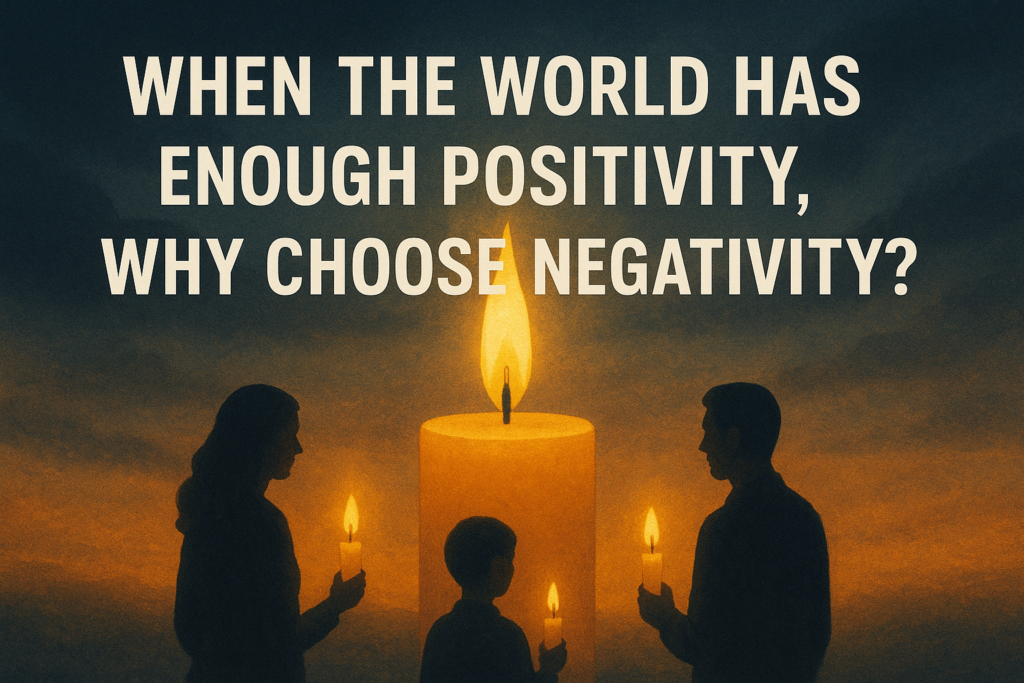Age is not merely a numerical value; it possesses additional significance in various aspects of life. While a number indicating the number of years since a person’s birth is a common way to represent age, it has social, cultural, psychological, and legal implications that go beyond a simple number. People often represent their age with a number that goes beyond a simple numerical measurement.
The definition of old age lacks a singular criterion. While chronological age may not be an ideal determinant for classifying an individual as ‘old’ or ‘aged,’ it is the prevailing criterion employed in most cases. In Western societies, the demarcation between middle age and old age is commonly recognized as occurring at the age of 65. Conversely, in developing nations, this transition is typically observed to take place within the age range of 55 to 60 years. The foundation of this argument lies in the mean duration of an individual’s life, which is correlated with the age at which retirement is typically pursued.

In addition to chronological age, there exist alternative indicators or markers that signify the state of being elderly. From a biological perspective, menopause is widely regarded as the onset of the aging process for women. In Indian society, similar to numerous other traditional societies, the marriage of one’s own children and the transition into grandparenthood signify the initiation of a gradual disengagement from active occupational and familial responsibilities, and a subsequent shift towards the pursuit of spiritual development.
Here are a few ways in which age holds significance:
Developmental Stages:
Age is closely associated with different developmental stages and milestones in life. It is used as a general indicator of physical, cognitive, and emotional maturation. Age helps us understand and predict certain behaviors, abilities, and needs at different points in life.
Legal and Social Rights:
Age often determines eligibility for various legal rights, privileges, and responsibilities. For example, the age of consent, voting age, legal drinking age, and eligibility for retirement benefits or pension schemes are all determined based on a person’s age. Age can also affect legal obligations, such as the age at which one can enter into contracts or be held responsible for criminal offenses.
Social Constructs and Expectations:
Society often assigns specific roles, expectations, and responsibilities based on age. These expectations may have an impact on how other people view and treat people. Age can impact educational opportunities, career prospects, and social interactions. Cultural norms and expectations regarding behavior, achievements, and milestones can also be tied to specific ages.
Biological and Health Factors:
Age is closely linked to biological changes and health considerations. As individuals age, their bodies experience physical changes, and they may be more prone to certain health conditions. Age can affect overall physical fitness, stamina, and susceptibility to diseases or ailments.
Psychological and Emotional Factors:
Age can have an impact on psychological and emotional well-being. Different age groups may experience unique challenges, concerns, and priorities. As people age, they may encounter changes in their self-perception, life goals, and social roles. Psychological development, cognitive abilities, and emotional resilience can also vary across different age groups.
While age holds significance in various contexts, it is essential to recognize that individuals within the same age group can have diverse experiences, abilities, and characteristics. It is crucial to consider factors beyond age alone when understanding and interacting with individuals.
What exactly is healthy aging?
Positivity, physical fitness, self-esteem, and participation in meaningful activities are all components of successful aging. It’s the conviction that age is nothing more than a number and that at any age, one can and should enjoy life to the utmost.
This method considers the impact that one’s frame of mind has on his or her mental and emotional health as we age. Adopting the pessimistic views of certain cultural assumptions and social norms that persist regarding aging may enhance one’s vulnerability to health problems and despair.
To combat this pessimism, advocates of “positive aging” stress the many advantages of growing older rather than bemoan their own mortality.
It’s fascinating how, when we focus on ourselves, age becomes unimportant and merely a number. Despite this generally optimistic outlook on aging, it is not necessarily reflected in how we evaluate the ages of others around us. Everyone here is to blame. At some point in your life, you probably complimented an elderly relative or friend by saying something like, “You look great for your age,” or made the snap judgment that an “older colleague” wouldn’t be up to speed on the newest office technology simply because their age was greater than yours. They must be ‘ancient’ to you, while you must be ‘young’ in your mind. What gives?

Every day, the language we’re constantly exposed to and the prevalent cultural beliefs and social standards in our society encourage this kind of negative thinking. It’s true that in India, at the ripe old age of 60, you become eligible for senior citizen concessions on Railway tickets. I, for one, do not consider myself to be an “older person,” but I will soon be eligible for the special benefit. While sipping your morning tea and perusing the newspaper (or surfing the web), you may come across a number of stories that use the terms “pensioner,” “elderly,” or “senior” in reference to people of advanced age. It’s as if we’re programmed to believe that getting older will inevitably diminish our physical and mental abilities, both in our personal and professional spheres.
Worldwide, the population of people aged 60 and older is projected to treble to four billion by 2050, according to the WHO. As a culture and, by extension, in many businesses, ageism is becoming increasingly problematic at a time when the global population is aging. After all, there’s no avoiding the fact that we’re all getting older with each passing day. Consequently, if we don’t initiate a shift in perspective now, our children and grandchildren will be subjected to the same ageist views that we face now.
Do older individuals stop learning or slow down upon gaining age?
No, getting older does not imply that older people can’t learn new things or that they must stop being active and productive. These are common misconceptions associated with aging that perpetuate ageist attitudes. In reality, older adults have the capacity to continue learning, growing, and engaging in various activities throughout their lives.
Lifelong Learning: Age should not be a barrier to learning. Older adults can and do acquire new knowledge and skills. Research has shown that the brain remains capable of neuroplasticity, allowing for continued learning and adaptation. Many older adults pursue formal education, engage in hobbies, learn new technologies, and participate in lifelong learning programs.
Productivity and Engagement: Older adults contribute to society in various ways. They bring wisdom, experience, and expertise to their roles in the workforce, volunteerism, caregiving, mentoring, and community involvement. Many older individuals remain active and engaged, pursuing their passions, starting new ventures, and making significant contributions well into their later years.
Physical and Mental Well-being: Staying active and maintaining physical and mental health are important aspects of aging well. Regular exercise, a healthy lifestyle, and cognitive stimulation can help older adults maintain their physical and mental capabilities. Slowing down or reducing certain activities does not imply a complete halt to productivity or learning.
Individual Differences: It is crucial to recognize that older adults, like individuals of any age group, have diverse abilities and preferences. While some older adults may choose to slow down or retire from certain activities, others continue to be highly active, vibrant, and eager to learn. Each person’s choices and capabilities should be respected, and generalizations about what older people can or cannot do should be avoided.
Promoting age-inclusive societies that value the contributions and potentials of older adults benefits individuals and society as a whole. It is important to challenge ageist stereotypes and support opportunities for lifelong learning, active engagement, and meaningful participation across all stages of life. By embracing the diversity of abilities and experiences within the older population, we can create a society that values the continued growth, learning, and contributions of individuals as they age.
Moving Beyond Chronological Age: Embracing Performance, Capabilities, and Skills
In a world where people are living longer, it is crucial to recognize that chronological age alone does not accurately reflect an individual’s performance, capabilities, or skills. Society often places undue emphasis on age as a measure of competence or potential, which can lead to ageism and limit opportunities for personal growth and societal contributions. To truly embrace and optimize the longer lives we are living, it is essential to shift our focus from numerical age and instead understand that performance, capabilities, and skills are not bound by a specific number of years lived.
Challenging Age as a Sole Indicator:
Chronological age has long been used as a convenient but flawed metric to assess an individual’s abilities and potential. However, it fails to acknowledge the vast individual differences in experiences, personal development, and skill acquisition. People age differently due to varying lifestyles, education, opportunities, and genetic factors. It is unjust to judge someone’s worth or abilities based solely on the number of years they have lived.
Performance and Capability Assessment:
To ensure that we truly live our longer lives to their fullest potential, it is important to focus on performance and capability assessments rather than age. Evaluating an individual based on their demonstrated skills, knowledge, achievements, and potential provides a more accurate representation of their abilities. This approach allows individuals of all ages to thrive and contribute meaningfully to society.
Adopting a Lifelong Learning Mindset:
Regardless of chronological age, it is crucial to cultivate a lifelong learning mindset. Continuous learning, personal growth, and skill development are essential to staying relevant and adapting to an ever-changing world. Embracing new technologies, pursuing education, seeking diverse experiences, and being open to personal and professional development opportunities can empower individuals to thrive at any stage of life.
Recognizing Experience and Wisdom:
While age may not directly equate to skills or capabilities, it often brings valuable experience and wisdom. Longevity offers opportunities to accumulate knowledge, insights, and problem-solving abilities that can be leveraged for the benefit of individuals and society. Acknowledging and valuing the experience of older individuals can lead to intergenerational collaboration and the exchange of valuable ideas.
Fighting Ageism and Bias:
Ageism, discrimination, or prejudice based on age, can hinder individuals from realizing their full potential. To overcome age-related biases, society must actively challenge stereotypes and misconceptions associated with age. Organizations can implement inclusive policies that value diversity in age and promote equal opportunities for people of all generations. By focusing on performance, capabilities, and skills, we can create a more inclusive society that embraces the strengths of individuals at any age.
Promoting Intergenerational Collaboration:
Building bridges between generations is crucial for the holistic development of society. Encouraging intergenerational collaboration allows for the exchange of knowledge, skills, and perspectives. Younger individuals can benefit from the wisdom and experience of older generations, while older individuals can gain fresh insights and innovative ideas from younger generations. This collaboration fosters mutual respect and understanding, leading to a more harmonious and productive society.

Breaking Stereotypes: The Diversity Within Older Adults
Society often falls into the trap of thinking that all older people are the same, painting them with a broad brush and neglecting the rich diversity that exists within this population. As Ashton Applewhite eloquently highlights in her TED Talk, “Let’s End Ageism,” we need to challenge this misconception and recognize that older adults encompass a wide range of experiences, perspectives, and abilities. Just as we don’t view all individuals between the ages of 20 and 60 as identical, we must break free from the rigid age brackets imposed on older adults and appreciate the uniqueness that each person brings.
The Age Spectrum: Older adults encompass a broad spectrum that spans multiple decades. Just as youth encompasses a range of experiences, from teenagers to young adults, older adulthood encompasses individuals from their 60s to their 100s and beyond. Within this age range, there is tremendous diversity in physical health, mental acuity, life experiences, cultural backgrounds, and personal interests. It is unfair and inaccurate to homogenize older adults under a single label, disregarding the vast differences that exist within this population.
Physical and Cognitive Diversity: When discussing older adults, it is essential to recognize the wide range of physical and cognitive capabilities that can exist within this group. While some individuals may experience physical decline or cognitive changes as they age, many older adults maintain vibrant health and sharp mental faculties. Age alone cannot predict an individual’s physical or cognitive abilities, as factors such as genetics, lifestyle choices, and access to healthcare play significant roles. Older adults should not be limited or underestimated based on assumptions about their physical or cognitive capacities.
Experiences and Perspectives: Each individual accumulates a unique set of experiences throughout their life. Older adults bring a wealth of knowledge, wisdom, and perspectives shaped by their personal journeys. They have lived through historical events, witnessed social transformations, and acquired wisdom from decades of navigating life’s challenges. This diversity of experiences can be a valuable resource for society, as it offers a broader perspective on complex issues and can contribute to intergenerational learning and understanding.
Cultural and Social Diversity: Older adults come from diverse cultural backgrounds and have rich cultural identities. Cultural diversity within this population brings a myriad of perspectives, traditions, and values. Recognizing and embracing this diversity can foster intercultural dialogue, enhance community cohesion, and promote social inclusivity. Older adults should be seen as valuable contributors to the cultural fabric of society, with much to offer in terms of art, literature, music, and oral traditions.
Challenging Ageist Stereotypes: To overcome ageism and break free from the perception that all older people are the same, it is crucial to challenge ageist stereotypes. Ageism perpetuates discrimination and limits opportunities for older adults. By promoting awareness and understanding of the diverse experiences and capabilities of older adults, we can combat ageist attitudes and create a more inclusive society. It is important to recognize that each individual’s worth and potential extend far beyond their chronological age.
Conclusion:
To ensure that we live our longer lives to their fullest potential, we must recognize that chronological age is an inadequate indicator of performance, capabilities, and skills. Emphasizing performance and capability assessments allows individuals to showcase their abilities regardless of age. By challenging ageism, embracing lifelong learning, recognizing the value of experience, and promoting intergenerational collaboration, we can create a society that appreciates the diverse talents and contributions of individuals at every stage of life.
Stereotyping older adults as a homogeneous group fails to recognize the incredible diversity that exists within this population. Just as we acknowledge the individuality and uniqueness of people across various age groups, we must extend the same understanding to older adults. By appreciating the diverse range of experiences, physical and cognitive abilities, cultural backgrounds, and perspectives within this population, we can challenge ageist assumptions, foster inclusivity, and create a society that values and respects individuals of all ages.
Finally, age is not merely a numerical value; it possesses additional significance, particularly when it comes to our diminishing abilities. While age should not be seen as the sole determinant of an individual’s capabilities, it is important to acknowledge that as we age, there may be physical, cognitive, and functional changes that can impact our abilities. However, it is crucial to approach this understanding with nuance and recognize that the aging process affects individuals differently.
Factors such as genetics, lifestyle choices, health conditions, and environmental factors all play a role in how we age and the extent to which our abilities may diminish. It is essential to avoid age-based stereotypes and assumptions, as they can perpetuate ageism and hinder opportunities for older adults. Instead, society should focus on fostering inclusivity, providing support systems, and promoting active aging to ensure that individuals of all ages can continue to lead fulfilling lives and contribute to their communities to the best of their abilities.
Disclaimer:
The author’s views are his or her own. The facts and opinions in the article have been taken from various articles and commentaries available in the online media and Eastside Writers does not take any responsibility or obligation for them.
Note: Contact our Writers at www.eastsidewriters.com for writing Blogs/Articles on any niche. We have experts in various domains from Technology to Finance and from Spirituality to Lifestyle and Entertainment.






